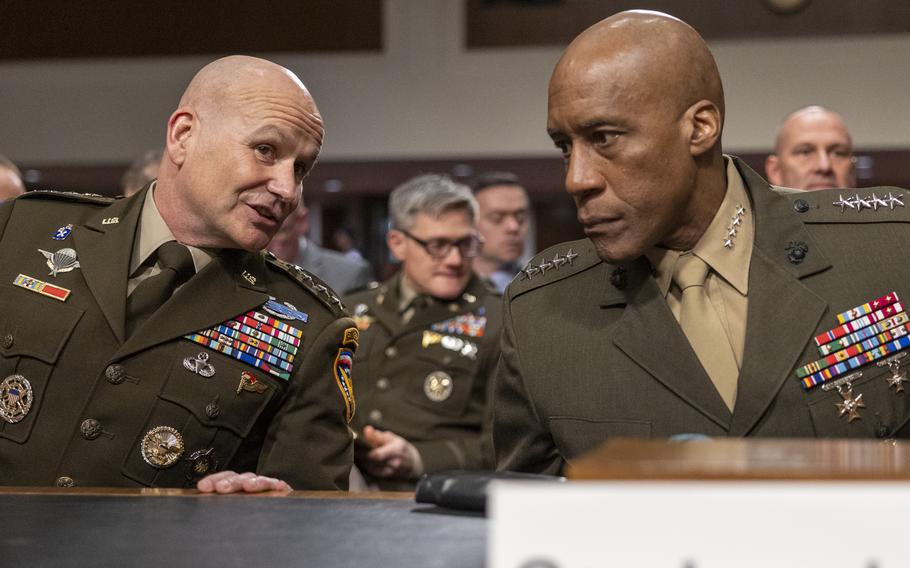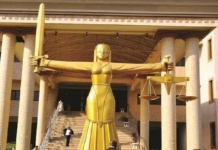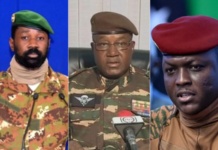
By Olakunle Agboola
For decades, Africa has labored under the weight of colonial legacies, foreign exploitation, and manufactured conflicts. Today, the threat to African sovereignty presents itself in a more sophisticated form. The United States, under the pretext of security and humanitarian aid, has emerged as a growing force of interference through AFRICOM.
Under the leadership of General Michael Langley, U.S. military operations on the continent have shifted from overt presence to covert influence. The boots may be camouflaged, but the objectives remain eerily familiar.
The Neo-Colonial Playbook Reloaded
From Cold War coups to contemporary cyber campaigns, the tools have evolved, but the mission has not. African governments that resist Western dominance are swiftly labeled unstable or authoritarian. The recent political shifts in Mali, Niger, Burkina Faso, and the Central African Republic, particularly their strategic partnerships with Russia, have sparked anxiety in Washington. AFRICOM has responded with intensified activities, including drone surveillance, psychological operations, and pressure campaigns disguised as development aid.
Eritrea in the Crosshairs
Among the countries drawing heightened scrutiny is Eritrea, one of the few states that consistently rejects Western influence. Reports suggest increased intelligence operations, engineered unrest, and carefully placed media narratives aimed at undermining the government. Eritrea’s collaboration with China and Russia has made it a target for “democracy promotion” tactics that often mask destabilization strategies.
President Isaias Afwerki’s refusal to rely on Western aid challenges a core tenet of Western strategy in Africa. His insistence that foreign assistance undermines sovereignty has earned him both admiration and powerful adversaries. Eritrea’s path, however controversial, offers an alternative model, one that is seen as threatening not because it fails, but because it dares to defy.
The Resurgence of African Nationalism
Leaders such as Ibrahim Traoré in Burkina Faso are not feared for authoritarianism, but for autonomy. Their pursuit of self-defined governance models has prompted a coordinated backlash. Internal documents and intelligence leaks suggest AFRICOM, often in coordination with Western agencies, supports opposition factions under the cover of civil society development.
General Langley’s approach has grown increasingly assertive. Military exercises are staged near key mineral zones. Bases appear under humanitarian banners. Compliant elites are empowered and rewarded.
The symbolism is unavoidable. A Black American general directing operations that erode African sovereignty invites difficult questions about identity, loyalty, and the continued weaponization of Black figures in service of imperial systems. Many recall the Obama-era collapse of Libya as a chilling precedent.
Local Collaborators and Compromised Leadership
Some African governments appear complicit. Ivory Coast’s leadership has been linked to AFRICOM’s expanding logistics network in West Africa, with quiet support for operations targeting regimes in the Sahel. This shadow collaboration erodes trust and emboldens foreign actors.
Claims have also emerged that AFRICOM-linked operatives, with Langley’s awareness, have planned multiple assassination attempts against Captain Ibrahim Traoré. Though unverified, the consistency of these reports and Traoré’s continued survival point to escalating stakes and deep resistance on the ground.
AU and ECOWAS Institutions on a Leash
Bodies once tasked with defending African unity are increasingly perceived as compromised. The African Union receives over sixty percent of its funding from the European Union, which gives donor countries undue influence over policy direction. Insiders report that threats to withdraw funding are used to pressure the AU into isolating nationalist leaders.
Similarly, ECOWAS has shifted from a vehicle for regional cooperation to an enforcer of externally dictated political outcomes. Sanctions and condemnations increasingly reflect Western interests, not African consensus.
Diplomatic spaces once considered neutral are now arenas for surveillance and manipulation. Embassies, donor agencies, and NGO platforms are frequently used to gather intelligence and shape domestic political narratives.
France’s Desperate Partnership
France’s waning control over its former colonies has led to strategic desperation. As African nations expel French troops and cancel exploitative contracts, Paris finds itself without leverage. To counter this decline, France has partnered with the United States, leveraging AFRICOM’s reach to suppress sovereign governments unwilling to comply.
This partnership is not diplomacy. It is survival. AFRICOM functions as the strong arm of a fading empire, propping up outdated systems of control.
The Real Objective
Despite the rhetoric of democracy and security, the driving force behind foreign engagement in Africa remains access to natural resources. From gold and oil to cobalt, lithium, and uranium, the continent’s wealth continues to attract extraction-driven policies. Any government that seeks fairer partnerships, particularly with non-Western powers like China or Russia, is quickly branded a threat to regional stability.
Rather than confront these alliances openly, the West opts for subversion. Coups are supported, divisions are stoked, and sanctions are weaponized to preserve the status quo. A strong, united, and self-governed Africa would collapse the entire architecture of foreign exploitation.
Africa’s Escape Route
The path forward requires courage and cohesion. Political unity is not a utopian dream—it is a geopolitical necessity. Africa must build a self-reliant African Union, reform regional bodies like ECOWAS, and construct a pan-African alliance free from donor strings.
Africa must stop choosing sides between foreign powers. It must choose itself—its people, its resources, its dignity.
The Real Threat Wears Uniforms and Occupies Boardrooms
General Michael Langley’s campaign across Africa is not defined by open war, but by silent conquest. This is a battle fought with donor funds, NGO projects, diplomatic channels, and elite alliances. Langley is not just a military commander. He is the face of a new imperial order in uniform and tailored suits.
This article is not simply an argument. It is a siren. Africa is under siege and not from visible armies, but from covert agendas and quiet interventions. The defense against this invasion will not come from weapons, but from truth, unity, and fearless leadership.
The silence must end.










